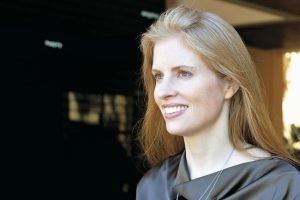summit
Reflections from the 2021 Philanthropy Innovation Summit

“I choose and believe in light and love. I know you do too. But it is not enough just to hope for it. It is not enough to wish for justice. It is not enough to hope that people will do right. If we value it, we must stand for it, and fight for it.”
- Elizabeth Alexander, CEO of the Mellon Foundation
Elizabeth Alexander’s stirring words capture one of the most important philanthropic calls to action of our time. I shared her message as we opened the 2021 Philanthropy Innovation Summit this month, cognizant of the fact that, at its core, justice must permeate every aspect of philanthropy—which manifests our love for humankind.
I first conceived of the Philanthropy Innovation Summit in 2011, and we held our first convening of peer philanthropists in 2013. Our Summit was born out of a shared recognition that in order to fully realize philanthropy’s potential to drive positive change, philanthropists needed formal opportunities to exchange ideas, learn about best practices and groundbreaking research, and explore new strategies for greater impact. We launched the Summit as a biennial in-person event hosted on the Stanford campus, convening individuals and family philanthropists from around the globe in a non-partisan, non-solicitation environment.
We carefully design each Philanthropy Innovation Summit to provide a compelling and challenging mix of plenary presentations and peer-to-peer discussions. The PACS advisory board and staff work for many months to identify appropriate speakers and panelists, select relevant and timely topics, and create an atmosphere that invites collaboration and learning among and between attendees. This year’s virtual event was no exception.
We began our time together with a captivating conversation between Michael Bloomberg and David Siegel, in which these two exceptionally experienced and influential philanthropic leaders shared their personal views on wealth and giving. Since the Summit, I have heard from many peers how much they appreciated Mike’s and David’s candor. Their insights around wealth and responsibility, and the power of trusted peers in influencing and guiding our philanthropic decisions, were a highlight of the Summit. Their contributions have already inspired important conversations within our Summit community.
Darren Walker, Rob Reich, and Fei-Fei Li shared a fascinating and relevant conversation about big tech and the public interest, framing the potentially transformative role that philanthropy can play in promoting responsible tech innovation and human-centered tech design. They called upon our audience, as citizens and philanthropic leaders, in training and supporting a new generation of technologists who see serving the public interest as their calling. They spoke about how a current imbalance in our society, in which our civic leaders lack the tech expertise needed to offer a viable structural and legal counterbalance to big tech’s influence, is not sustainable. Without a major shift, they posited, our democracy itself may be at stake.
And I had the honor of hosting a conversation with the remarkable Judith Rodin, centered around the concepts she explores in the book she co-authored, Making Money Moral. As philanthropists, we have many ways to give to the causes we support. Money is one tool we use to support social good, through philanthropic, impact and for-profit investments. Together, Judy and I explored the power dynamics inherent in our economic system. She challenged our community to both acknowledge how as individual and professional investors, our investment criteria and decisions impact society and strategically consider how to use our influence to create change within companies, industries and systems.
Of equal importance to the spectacular wisdom our illustrious speakers provided us was the unique value of our small group conversations. This year’s event offered participants 13 salon sessions, including topics ranging from climate change and family philanthropy to mental health and giving data. Our Summit community members came together in small groups of 15-20 philanthropists per salon, where we had the opportunity to learn from each other with guidance from experts and peer leaders. While certainly different in a virtual setting, the salons were no less impactful. Once again, they delivered candid conversations, new friendships, and collaborative commitments to areas of shared philanthropic passion. We eagerly anticipate continuing these topic-specific conversations and inviting more members of our community to participate as we highlight salon speakers’ reflections here in the Summit blog moving forward.
Once again, I am deeply grateful for the exceptional leadership of our host committee and its stellar co-chairs, our amazing staff event team, our incomparable speakers and our accomplished salon guides who made these conversations possible. The engagement of our incredible Summit community inspires me and our Stanford PACS board, faculty co-directors and staff’s continued pursuit and dissemination of new ideas as well as our recommitment to positively impacting and transforming our world.
As we all continue to partner together, I excitedly await bringing our community together IN-PERSON for our 2023 Philanthropy Innovation Summit on Stanford’s beautiful campus!
